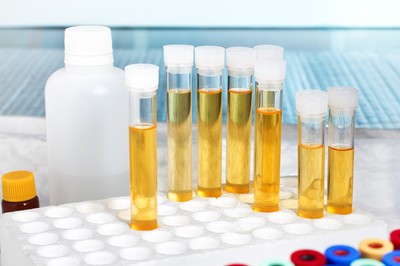



Original story from the University of Alberta
New research will help health-care practitioners to more accurately diagnose disease and illness in newborn babies from urine samples, according to a study by researchers at the University of Alberta and the Universidad Aut¨®noma de Zacatecas.
The study examined the chemical composition of urine samples from 48 healthy, full-term newborn babies in the first hours after their birth, helping to establish a baseline for healthy chemical levels. Urine can be used to diagnose and monitor many conditions in infants, including metabolic disorders, genetic diseases, and birth-trauma effects.
¡°The challenge is that we do not have reference points for healthy ranges of these chemicals in urine for newborn babies,¡± explained David Wishart, professor in the University of Alberta's Department of Biological Sciences, Department of Computing Science, and Department of Laboratory Medicine and Pathology. ¡°As a result, it's hard for doctors or clinical chemists to determine if a newborn is really sick or their chemical concentrations in urine or blood are normal.¡±
The research team, led by Wishart in partnership with Yamile Lopez-Herndandez from the Universidad Aut¨®noma de Zacatecas in Zacatecas, Mexico, used mass spectrometry to measure the concentrations of nearly 140 different chemicals in the babies¡¯ urine. The results quantified 86 chemicals that had never been measured in newborn urine before and another 20 chemicals that had never even been measured in human urine before.
¡°This research is really intended to help doctors and clinical chemists make more informed diagnoses with newborns using urine analysis,¡± explained Wishart. ¡°It provides reference data that every doctor or neonatologist around the world can freely use in order to compare sick newborns with their healthy counterparts.¡±